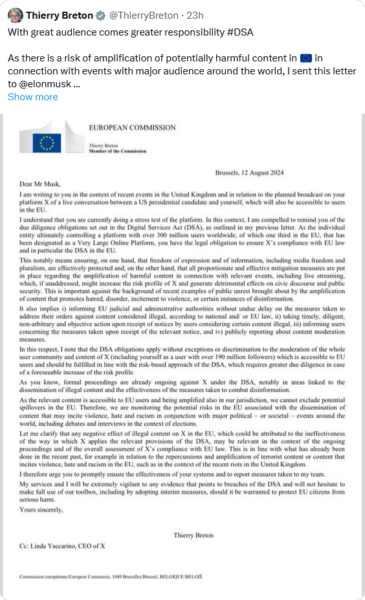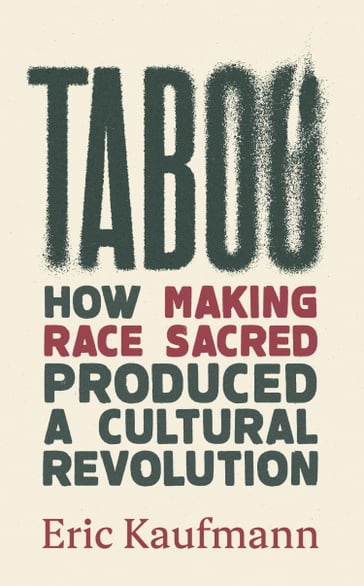Rex Krueger
Published May 1, 2024Every table needs a top and every hand tool woodworker can use these skills.
Get the Plans! https://www.rexkrueger.com/store/p/wn…
Patrons got them early and FREE: https://patreon.com/rexkrueger
(more…)
August 15, 2024
Build the Square-Leg Craftsman Table (Part 3): Bandsaws are too easy!!! Make the round table top with basic tools
QotD: The bitter fruit of deinstitutionalization
In 1963, JFK signed the Community Mental Health Act. Its order to close the state psychiatric hospitals was followed, and hundreds were shuttered; the community mental health centers that were meant to replace them were never built. With far fewer beds for a growing patient population it should not have surprised anyone that the streets gradually filled with the severely ill. But somehow, we were surprised. The state governments were mostly just grateful to save money that had once gone to mental healthcare. The passage of Medicaid two years later deepened the problem. Medicaid’s funding structure presented states with an opportunity to further offload costs, this time onto the federal government. Unfortunately, the private institutions that filled with Medicaid patients were no better than the state facilities that had been closed; often they were worse. And maintaining access to Medicaid funding for such care, in practice, was more complicated and less certain than staying in a state institution. In 1975, the Supreme Court’s O’Connor v. Donaldson decision established a national standard that the mentally ill could only be involuntarily treated if they represented an immediate threat to themselves or others. This completely removed actual medical necessity from the equation, and the standard directly incentivized hospitals to discharge very ill patients, many of whom leave these useless emergency room visits and immediately abuse drugs, self-harm, commit crimes, attack others, or commit suicide. In 1990 the passage of the Americans with Disabilities Act further empowered treatment-resistant patients and created legal incentives that led hospitals to release severely ill people rather than face the burden of litigation. Various state reforms in recent decades have almost uniformly pushed the severely ill out of treatment rather than into it, under the banner of “autonomy”. For sixty years we’ve done everything in our power to make it harder to treat people who badly need care. And here we are.
Freddie deBoer, “We Closed the Institutions That Housed the Severely Mentally Ill and We Made It Dramatically Harder to Compel Them to Receive Care”, Freddie deBoer, 2024-05-14.
August 14, 2024
All the news the legacy media chooses to share
Mark Steyn grudgingly pays a bit of attention to US politics, or more accurately, the parts of US politics that the legacy media wants Americans to know:

Donald Trump, surrounded by Secret Service agents, raises his fist after an attempt on his life during a campaign speech in Butler, PA on 13 July, 2024. One spectator was killed and two others were reported to be in critical condition. The shooter was killed by Pennsylvania State Troopers, according to reports in the succeeding hours.
In one party, the presidential candidate came within maybe an eighth-of-an-inch of having his head blown off on live TV.
In the other party, the presidential candidate was more successfully dispatched — and the millions of primary votes he’d supposedly received simply nullified.
Either of these would be extraordinary events in any other country. And yet, under the smooth narrative management of the American press, they were mere spasms of momentary discombobulation before the normal somnolent service was resumed. “Democracy Dies in Darkness”, The Washington Post informs its readers every morning. In fact, under the court eunuchs of the US media, democracy dies in broad daylight.
First, the Pennsylvania assassination attempt was memory-holed — in an industrial-strength illustration of Orwell’s brilliant coinage: any day now there will be some poll showing thirty-seven per cent of registered voters are entirely unaware that a would-be killer hit Trump in the ear. And this despite the fact that every few hours there are — oh, what’s the word they use in nations with a real press? — newsworthy revelations about all that the Secret Service did to facilitate the operation, to scrub the evidence afterwards, and to lie to Congress about both.
At this stage, they might as well remake In the Line of Fire with Clint lying on the roof next to the goofball lining up his shot and helpfully suggesting, “Think you might be maybe a half-centimeter off there, sonny …” (On the other hand, if you’re looking for some guys to break into a Massachusetts hair salon to use the toilet for two hours and then leave the joint unlocked for the rest of the weekend, this is the federal agency for you.)
In the American media, a tree can fall in the forest in front of twenty million people — and it still doesn’t make a sound.
On the other hand, we have … wossname, you know, the stiff who was nose-diving off the steps to Air Force One just twenty minutes ago. In the entirety of last week the so-called “President of the United States” had only one bit of state business to perform — a Monday telephone call with the King of Jordan. Her late Majesty Queen Elizabeth II had a heavier workload the day before she died at ninety-six. But the same people who’ve spent the last three-and-a-half years insisting that Joe Biden was the chief executive of the United States can no longer be bothered with the elaborate pretence: the show supposedly has five months to run, but they’ve struck the set and sent the crew home, and left the star sitting slack-jawed and drooling in his Chinese Barcalounger in the dark on an empty stage. Joe’s sole residual presence in the news cycle is when Nancy Pelosi goes on TV and breezily claims to be the one who had him whacked (although the party’s other “senior powerbrokers” are reported to be mildly irked by her braggadocio: they assert that, as in Murder on the Re-Orient Express, everybody did it).
So who is running the United States? If the presidency is so important it’s worth holding a two-year contest to decide who gets to occupy it, why isn’t who’s exercising those powers right now of any interest?
Well, that’s been memory-holed, too. America’s uniquely unique “peaceful transfer of power” has begun six months early, that’s all.
So, on the one side, 24/7 coverage of the candidate being indicted, sued, tried, convicted and (coming soon!) banged up in Rikers Island will continue … but it doesn’t leave any resources to investigate him getting shot in the head on live TV.
And, on the other side, a candidate with not a single primary vote to her name has been imposed on the party by who knows who … but it would be grossly disrespectful to the majesty of her office (President-Designate) to expect her to sit down for a puffball interview with George Stephanopoulos. (“Do you think all these GOP demands that you be able to answer questions on your platform and if you know where it’s being kept are because many Republican men are still uncomfortable with the idea of a strong black Montreal schoolgirl running for president?”)
But it’s not just the regime-aligned mainstream media who want to control what you get to see and hear — the European Union seems to think it can dictate to American social media companies what they’re allowed to share:
“The European Union’s digital enforcer wrote an open letter to tech mogul Elon Musk on Monday ahead of a planned interview with former United States President Donald Trump to remind him of the EU’s rules on promoting hate speech,” reports Politico.
“As the relevant content is accessible to EU users and being amplified also in our jurisdiction, we cannot exclude potential spillovers in the EU,” wrote Digital Commissioner Thierry Breton on X. “With great audience comes greater responsibility.”
Meanwhile, The Guardian reports that Bruce Daisley, Twitter’s former vice-president for Europe, the Middle East and Africa, has said Musk should face “personal sanctions” — which are “much more effective on executives than the risk of corporate fines” — and even, possibly, an “arrest warrant” if he “continue[s] stirring up unrest” on the platform.
“The question we are presented with is whether we’re willing to allow a billionaire oligarch to camp off the UK coastline and take potshots at our society,” says Daisley. “The idea that a boycott — whether by high-profile users or advertisers — should be our only sanction is clearly not meaningful.” (All Musk has done, for the record, is criticize British Prime Minister Keir Starmer for his handling of riots over immigration, calling him a “hypocrite” and “two-tier Keir“.)
The Korean War Week 008 – The First UN Counterattack – August 13, 1950
The Korean War by Indy Neidell
Published 13 Aug 2024The first UN large scale counterattack goes off this week; this by the American Task Force Kean. It has both successes and failures, and it runs right into a new North Korean offensive. The fighting happens just about everywhere on the Pusan Perimeter this week, though. That’s the area into which the UN forces have been compressed, and it is particularly threatening at the Naktong Bulge. It is, plain and simple, a week of desperate and bloody fighting and that’s about it.
Chapters
00:47 Recap
01:27 The Pusan Perimeter
04:31 Task Force Kean
07:44 The Naktong Bulge
10:09 The Fight Around Daegu
13:45 Summary
(more…)
Premier Doug Ford’s weird plan to hold the justice system to account
The problem with Premier Ford’s as-yet-unelaborated plan to collect formal statistics on the products of the criminal justice system is that it’s weird. And Canadians don’t like weird things because something something Donald Trump something something Hitler. Despite that, Colby Cosh thinks it’s a good idea:

Superior Court of Justice building on University Avenue in Toronto (formerly the York County Court House).
… the very idea of addressing a social problem by gathering quantitative information is so un-Canadian as to seem radical and startling. It certainly seemed that way to the lawyers and civil libertarians who freaked out at Ford’s mention of “accountability” for judges who fail to protect the public from criminal predators.
Judicial independence is an axiom of our constitution — but to the degree that judges become policymakers, which is perpetually increasing as they discover creative new applications of the Charter, their lack of oversight by elected legislators and by the voting public is also a serious and obvious problem, purely in principle. It is no wonder the legal guild takes fright at the notion of “accountability” if it is interpreted to mean that judges might be subject to enforceable performance measures or firing by a minister.
But, of course, the word “account” is visible in there, and measurement of a social crisis is necessary to establish that one exists, even if almost everybody believes it to exist. Our courts are the first to castigate a government that makes some legislative change affecting individual rights without an attempt at inquiry into its reasonability and urgency. Ford, in proposing to establish the dimensions of preventable re-offending, is doing exactly what a legislator hoping to reduce crime ought to do: gather numbers. Collect and publish information. And let us specify that we mean publish publish, in an open, dependable, accessible way, with maximum detail.
Frankly, Ford’s announcement seems as much as anything like a reaction to being backed into a corner by an unresponsive Liberal government, which controls bail policy and the content of the Criminal Code, and by judges, whose irrational bail and sentencing decisions flood what’s left of our news media. Provincial politicians are bound to be judged by voters on the perceived prevalence of crime, but about all they can actually do about it is to, well, buy more choppers for the coppers and start collecting local data about revolving-door justice.
Update: Fixed broken link.
Madsen M50: From the Korean War to Star Trek
Forgotten Weapons
Published May 1, 2024During World War Two, Madsen (DISA) manufactured a licensed copy of the Finnish Suomi (see: Danish M1941 Suomi SMG). When the war ended, they wanted to replace this with a more modern, inexpensive design of their own. The result was the Model 1946 Madsen, a creative clamshell design of stamped parts. It is a very simple blowback, open-bolt 9x19mm SMG that perfectly fit the post-war era. The M46 version was sold to a few countries, and after some continued development and refinement the M50 version was demonstrated to a public audience in November 1950. This pattern was even simpler than before, and proved a popular gun for many unaligned countries in Central and South America and Southeast Asia — so much so that it remained in production until the 1980s. A bunch were imported into the US in the 1950s and 1960s, and they found a home in the movie industry, where they were often used in fantasy/sci-fi films to avoid having guns that would be recognized by American movie audiences.
(more…)
QotD: The solipsism of the American media
… when it comes to solipsism, the American Media puts the average teenage girl to shame. The American Media doesn’t cover anything that happens outside the USA. In fact, if they can help it, they don’t cover anything that happens outside of New York, LA, or [Washington, DC], unless it somehow advances The Narrative. I am 100% certain that when the St. Floyd thing happened, more than one veteran “news” reporter had to look up where, exactly, this place called “Minneapolis” is.
Severian, “Friday Mailbag”, Rotten Chestnuts, 2021-07-09.
August 13, 2024
“We just don’t understand the key role of ‘vibes’ in 2024”
In Spiked, Brendan O’Neill admits to being an “old square” who hasn’t really been able to figure out the Kamala Harris campaigning style:

“Kamala Harris” by Gage Skidmore is licensed under CC BY-SA 2.0 .
I was thinking the other day: what do I know about Kamala Harris? Off the top of my head, no Googling, I know she was the attorney general of California. I know she locked up lots of people for marijuana violations. I know she likes Venn diagrams. I know she didn’t fall out of a coconut tree. I know she’s “brat”, though I don’t know what that means. I know her ceaseless cackle will haunt me to my grave. I know she’s unburdened by what has been. And I know she was the border czar, even if she herself seems to have forgotten that fact.
And that’s it. That is the long and short of my knowledge about the possible future leader of the free world. You could torture me for days and I wouldn’t be able to tell you her positions on the big issues presidential candidates once held forth on. Iran, say. Or global trade. Or job creation. I’m open to the possibility that this is partly down to my lack of reading, but there’s also more to it than that. The truth is Harris is a wholly new kind of politician. One who’s not meant to be known but felt. It’s less her policies we’re meant to be wowed by than her vibes. Brace yourselves: America might soon be ruled by a meme made flesh.
[…]
There’s a twisted irony to this feverish beatification of Kamala as the vibe goddess, the mother brat, the “Gen Z Meme Queen” (kill me now). Which is that it’s the handiwork of the kind of sniffy liberals who laugh at rednecks for falling for the “Cult of Trump“. It’s being pushed by online leftists who spend the rest of the time wringing their hands over Trump’s “demagoguery”, his sinister ensnaring of supposedly dim voters with rhetoric and style. These people urgently need to take a look in a mirror. For their creepy worship of Harris is the very definition of demagoguery. Their excuse-making for her ivory-tower style of campaigning makes the most wide-eyed MAGA people look critically minded in comparison. As to their lying down so that the Kamala vibes might wash over them and provide with them an emotional kick – it’s giving North Korea.
What are “vibes”, anyway? All I know, being middle-aged and literal, is that vibes is short for vibrations. It’s a Sixties thing, originally. It’s about pressing pause on all your thinking and worrying and just letting the beat rush through you. That’s fine in a club or art venue. But in politics? In a presidential campaign? Surely we should expect more from our elected representatives than a fleeting therapeutic thrill. It is a testament to the almost total hollowing out of public life, to “the fall of public man“, as Richard Sennett described the crisis of modernity nearly 50 years ago, that in an era of economic downturn, social conflict, war and fear, all we’re getting from one of the presidential candidates in the United States of America is vibes. And brat. And memes. And laughing. So much laughing.
The new politics of vibes is even more degraded than the politics of personality. That political style of the 1980s and 90s also spoke to a decline in democratic seriousness, where politicians would seek votes less on the basis of what they believed than on their spin-doctored pose as intimate, authentic “good guys”. But at least they tried to connect with us, at least they talked to us. Aloof, inscrutable “brat” Kamala is something far worse – a politician without substance or personality. Bereft of both vision and character, all she has to offer is strange vibrations.
Feelings … nothing more than (climate) feelings …
Have you been metaphorically beaten over the head about your climate sins? Your carbon buttprint? You know your very existence is a threat to Mother Gaia, right? Well, Katharina van Bronswijk is worried that you’ll stop listening to the neverending lectures about you and your evil externalities:
Climatism is a political programme bound to a broad social movement. Most of its momentum comes not from The Science or The Experts, but from diffuse cultural forces that we should probably try to understand, if only because they are driving our entire civilisation straight into the ground. Against all advice, I will therefore steer the plague chronicle into this ridiculous quagmire of leftoid green babble, with a look at our first lesson in Unlearnings, namely “Unlearn Repression”.
This superficial and disorganised essay is the work of an infuriating young woman named Katharina van Bronswijk. She’s a psychotherapist best known for her 2022 book, Climate in Our Heads. Fear, Anger, Hope: What the Ecological Crisis is Doing to Us. It belongs to that genre of inevitably unreadable monographs, in which the author herself appears on the cover, looking windswept, pioneering and undaunted:
“Climate feelings” are van Bronswijk’s niche in the extremely crowded enterprise of CO2-bothering. In “Unlearn Repression”, she argues that we should not suppress our negative feelings about climate change, but rather embrace them in constructive ways on behalf of the planet.
Now, van Bronswijk is the kind of deeply unoriginal person who just says the same things over and over. Everything she writes in “Unlearn Repression” flows directly from Climate in our Heads; she’s been digesting, reheating and reworking this same overboiled intellectual artichoke for almost two years now, through various media interviews and even in this English-language TEDx Talk. Throughout this woman’s work is the vague anxiety that the climatists have perhaps overdone it with doom and gloom, and that a lot of people have had enough of hearing about a climate apocalypse that never quite happens.
Van Bronswijk is naturally very dumb, but more than that she is painfully condescending, oblivious, verbose and just awash in litres of estrogen. I defy anyone to read her work and not come away from it a raging misogynist. This odious overpromoted schoolmarm belongs out of sight in a childcare centre teaching young children the alphabet. Perhaps she should also be in a choir, or part of a local environmental club dedicated to collecting litter in parks. That our society has denied van Bronswijk and so many others like her these proper outlets for their instincts and instead pushed them into public activism and intellectual production itself explains a great deal of what is wrong with the world.
“Unlearn Repression” opens with some autobiographical details, because of course everything van Bronswijk talks about is all about van Bronswijk. Like so many Germans of her generation, she was radicalised by school climate propaganda – specifically, by her teacher’s fateful screening of that classic propaganda film, An Inconvenient Truth:
Back then … I was happy for the welcome distraction of watching a film instead of doing normal lessons. But afterwards I was shocked and asked my mum for answers to all the questions and challenges. She didn’t have any solutions for me, how could she? I was alarmed and started to think about the impending consequences of climate change and what could be done about it. I found approaches in newsletters from NGOs and by reading up on animal and environmental protection … That was when my dream bubble burst and I realised: the world is unfair and, unlike all the Disney stories of my childhood, there will be no single hero*ine who saves the world. And there is no magical or technical miracle solution either.
Al Gore’s film so terrified the young van Bronswijk, that for a while she retreated into conspiratorial theories about why climate change is not happening, which qualifies our crayon psychotherapist to pronounce upon the psychology of those who deny the climate. This deeply evil and irrational movement is driven primarily by “white men”, because they “still enjoy most of the privileges in our society, and therefore have the most to lose”.
Taboo by Eric Kaufmann
In Quillette, John Lloyd reviews Eric Kaufmann’s Taboo:How Making Race Sacred Produced a Cultural Revolution:
Earlier this year, Eric Kaufmann, a Canadian professor of political science, left Birkbeck College in the University of London where he had taught for twenty years. He was also head of the political science department there, and already had a number of deeply researched books behind him. But neither long service, departmental prominence, nor publishing success offered much of a defence against three separate attempts to cancel him. Indeed, his 2018 book Whiteshift told against him, since it argued, inter alia, that white majorities should have as much right to protect their identity and culture as minorities, a position now perceived by some as evidence of racism. “Repressing white identity as racist”, he wrote, “and demonising the white past, adds insult to the injury of this group’s demographic decline. This way lies growing populist discontent, or even terrorism.”
During the first part of his career, Kaufmann mostly kept his conservative views to himself, and with good reason. When he revealed them in Whiteshift, he became a marked man and spent several years fending off persistent efforts to strip him of his job and livelihood. His academic colleagues were generally unsupportive, and some of them participated in the campaign against him. So, he left Birkbeck for the University of Buckingham, the first of a small clutch of private universities created since the 1970s with the enthusiastic backing of Prime Minister Margaret Thatcher. Buckingham takes pride in rejecting leftist monoculture in favour of an approach that privileges open debate without the risk of career obliteration.
These days, Kaufmann is — as the Scots saying goes — a “bonnie hater” (or what others might call a “happy warrior”). With his new book, he joins the best of those (disproportionately American) writers, journalists, and politicians alarmed by the activities of ideologically motivated individuals and organisations operating under the vague umbrella term “wokeism”. This inchoate movement, Kaufmann maintains, is deeply destructive of freedom (and of freedom of speech in particular), learning, virtue, public morality, patriotism, and emotional continence. It is, Kaufman recently told the Daily Mail, an “Orwellian threat to the [E]nlightenment — free speech, equal treatment, due process, objective scientific truth. I believe this new woke ideology threatens the foundations of our civilisation.”
Wearying of the years of harassment he received for his views (none of which, he stresses, was ever physical), Kaufmann moved to Buckingham. He wanted to take advantage of the opportunity to establish a Centre for Heterodox Sociology where progressive doctrines could be studied, dissected, and debated, a pursuit he believes would be impossible anywhere else. Buckingham received first prize for free speech in last year’s National Student Survey. It will now be required to live up to that distinction, since Kaufman’s approach — after many years spent avoiding conflict — has become direct and uncompromising. Any determined left-leaning student or scholar would find this an intolerable provocation — a display of prejudice and bigotry meriting expulsion from the scholarly body lest it spread to innocent souls insufficiently prepared to counter it.
The list of progressive doctrines Kaufmann has compiled to define “wokeism” is probably the most comprehensive assembled to date. Much of what concerns him most relates to education. He believes that higher education, in particular, has become a place of inflexible dogmas on race, gender, emotional fragility, and anti-white bias rather than a home of serious study, reflection, and discussion. But he does not believe—as many other critics of contemporary progressivism do—that this is a kind of warmed-over Marxism, in which the fragile student has taken the place of the exploited proletarian. Instead, progressivism’s concern for the outnumbered, the vulnerable, and the frail can be traced back to Christ’s teachings, and especially to his Sermon on the Mount reported in Matthew 5:5: “Blessed are the meek, for they shall inherit the earth.” This injunction is now marshalled into a secular hallowing of blacks (above all), Muslims, women, and LGBT individuals.
Kaufmann calls the upshot of this genealogy “cultural socialism” — a movement that privileges equality, but equality of outcome not merely opportunity. He points to a speech that US president Lyndon Johnson delivered to students at the historically black Howard University in 1965, in which Johnson claimed that “we seek not just equality as a right and a theory, but equality as a fact and equality as a result”. Suddenly, Kaufmann remarks, “the door was open to restricting liberty and equal treatment in the name of achieving ‘equality of result’.” Such a regime, he points out, will inevitably disincentivise effort and excellence. Why forgo pleasure to work hard when the dedicated and indolent alike will all be made equal in the end? It’s worth remarking, however, that socialism does not necessarily provide the low road to unequal equality. Kaufmann quotes the historian Eric Hobsbawm — an unapologetic communist until he died in 2012 — who insisted that privileging one group over another will destroy society by breaking it into mutually hostile communities.
The Original Secret History
Tom Ayling
Published Apr 28, 2024This is the story of Procopius’s Secret History Of Justinian – originally written around 550, but not published until 1623.
In this video we look at how Procopius wrote the text, how it survived, almost unknown, for 1,000 years, how it came to be published in the 1620s, and the extraordinary ramifications when it was.
00:00 Introduction
00:44 The Original Composition Of The Secret History
02:40 The Survival Of The Text In Greek Manuscripts
05:56 The Rediscovery And Publication Of The Secret History
08:23 Secret Histories Go ViralTo learn more about Secret Histories, sign up to receive my catalogue of rare books devoted to the subject – https://www.tomwayling.co.uk/register
I couldn’t have made this video without the help of two works in particular. The first is Brian Croke’s magisterial Procopius: From Manuscripts To Books: 1400-1850. The second is The Secret History In Literature, 1660-1820 which is edited by Rebecca Bullard and Rachel Carnell.
My name’s Tom and I’m an antiquarian bookseller – you can browse the books I have for sale on my website: https://www.tomwayling.co.uk/
QotD: The weird world of the Iliad
[Jane Psmith:] … as weird and crufty and full of archaism as it is, the Iliad is actually the first step in the rationalization of the ancient world. Like, it’s even weirder before.
Homer (“Homer“) presents the gods as having unified identities, desires, and attributes, which of course you have to have in order to have any kind of coherent story but which is not at all the way the Greeks understood their gods before him (or even mostly after). The Greeks didn’t have a priestly caste with hereditary knowledge, or Vedas, or anything like that, so their religion is even more chaotic than most primitive religions. “The god” is a combination of the local cult with its rituals, the name, the myths, and the cultic image, and these could (and often did) spread separately from one another. The goddess with attributes reminiscent of the ancient Near Eastern “Potnia Theron” figure is Hera, Artemis, Aphrodite, Demeter, or Athena, depending on where you are. Aphrodite is born from the severed testicles of Ouranos but is also the daughter of Zeus and Dione. “Zeus” is the god worshipped with human sacrifice on an ash altar at Mt. Lykaion but also the god of the Bouphonia but also a chthonic snake deity. Eventually these all get linked together, much later, primarily by Homer and Hesiod, but even after the stories are codified — okay, this is the king of the gods, he’s got these kids and this shrewish wife, he’s mostly a weather deity — the ritual substrate remains. We still murder the ox and then try the axe for the crime, which has absolutely nothing to do with celestial kingship but it’s what you do. If you’re Athenian. Somewhere else they do something completely different.
I also really enjoyed this book, and I think for similar reasons to you. Because you’re right, at the end of the classical world it wasn’t just the philosophers. One major theme in Athenian drama is the conscious attempt to impose rationality/democracy/citizenship/freedom (all tied together in the Greek imagination) in place of the bloody, chthonic, archaic world of heredity.1 It’s an attempt at a transition, and one which gets a lot of attention I think in part because people read the Enlightenment back into it. But my favorite part of the The Ancient City is Fustel de Coulanges’s exploration of the other end of the process: where did all the weird inherited ritual came from in the first place?!
The short version of the answer is “the heroön“. Or as he puts it: “According to the oldest belief of the Italians and Greeks, the soul did not go into a foreign world to pass its second existence; it remained near men, and continued to live underground.” Everything else follows from here: the tomb is required to confine the dead man, the burial rituals are to please him and bind him to the place, the grave goods and regular libations are for his use, and he is the object of prayers. Fustel de Coulanges is incredibly well-read (that one sentence I quoted above cites Cicero’s Tusculan Disputations, “sub terra censebant reliquam vitam agi mortuorum“, plus Euripides’ Alcestis and Hecuba), and he references plenty of Vedic and later Hindu texts and practices too. I also immediately thought of the Rus’ funeral described by ibn Fadlan and retold in every single book about the Vikings, in which, after all the exciting sex and human sacrifice is over, the dead man’s nearest kinsman circles the funerary ship naked with his face carefully averted from it and his free hand covering his anus. This seems like precautions: there’s something in the ship-pyre that might be able, until the rites are completed, to get out.2 And obviously we now recognize tombs and burial as being very important to the common ancestors of the classical and Vedic worlds — from Marija Gimbutas’s kurgan hypothesis to the identification of the Proto-Indo-Europeans with the Yamnaya culture (Ямная = pit, as in pit-grave) — their funerary practices have always been core to how we understand them. But I’m really curious how any of this would have worked, practically, for pastoral nomads! Fustel de Coulanges makes it sound like you have your ancestor’s tomb in your back yard, more or less, which obviously isn’t entirely accurate when you’re rolling around the steppe in your wagon.
I’d also be interested to see an archeological perspective on his next section, about the sacred hearth. This is the precursor of Vesta/Hestia and also Vedic Agni, the reconstructed *H₁n̥gʷnis (fire as animating entity and active force) as opposed to *péh₂ur (fire as naturally occurring substance). I looked back through my copy of The Wheel, the Horse, and Language and (aside from a passing suggestion that the hearth-spirit’s genderswap might be due to the western Yamnaya’s generally having more female-inclusive ritual practices, possibly from the influence of the neighboring Tripolye culture), I didn’t find anything. I suppose this makes sense — you can’t really differentiate between the material remains of a ritual hearth and a “we’re cold and hungry” hearth, especially if people are also cooking on the ritual hearth so there’s not a clear division anyway. But if anyone has done it I’d like to see.
I don’t know enough of the historiography to know whether Fustel de Coulanges was saying something novel or contentious in the mid-19th century, but he seems to be basically in line with more recent scholarship even if he’s not trendy. But The Ancient City can be read as a work of political philosophy as well as ancient history!
Jane and John Psmith, “JOINT REVIEW: The Ancient City, by Numa Denis Fustel de Coulanges”, Mr. and Mrs. Psmith’s Bookshelf, 2023-02-20.
1. And of course that tension is extra intriguing because the dramas are always performed at one of these inherited rituals, in this case the city-wide Great Dionysia festival, although it was a relatively late addition to the ritual calendar. Incidentally it’s way less bizarre than the Attic “rustic” Dionysia which is all goat sacrifices and phallus processions. (There’s also the Agrionia in Boeotia which is about dissolution and inversion and nighttime madness, and another example of “the god” being a rather fluid concept.)
2. Neil Price, in his excellent Children of Ash and Elm, says that the archaeological evidence seems to confirm this:
“Most of the objects [in the Oseberg ship burial] were deposited with great care and attention, but at the very end most of the larger wooden items — the wagons, sleds, and so on — were literally thrown onto the foredeck, beautiful things just heaved over the side from ground level and being damaged in the process. The accessible end of the burial chamber was then sealed shut by hammering planks across the open gable, but using any old piece of wood that seems to have been at hand. The planks were just laid across at random — anything to fill the opening into the chamber where the dead lay. The nails were hammered in so fast one can see where the workers missed, denting the wood and bending or breaking off the nail heads.”
August 12, 2024
Lions, foxes and wolves
N.S. Lyons tries to explain how Britain has gotten into its current social and political plight by recalling the works of Niccolò Machiavelli:
The riots that have recently wracked the streets of the UK reflect decades of pent up public frustration with the country’s governing elite, especially their total refusal to control mass immigration despite vote after vote demanding they do exactly that. The pot has now boiled over. But the ongoing back-and-forth of ethnic violence also represents a signal that the British elite’s whole broader strategy of governing – one based in the fundamental personality of the ruling class itself – may be beginning to break down. And that carries some significant implications.
To understand why, however, we need to take a brief detour back about five centuries to Niccolò Machiavelli. He identified two archetypical psychological profiles of people who become leaders: the cunning but weak fox, who can outmaneuver his opponents but is “defenseless against wolves”; and the strong and brave lion, who likes to fight and who can scare off wolves but who is “defenseless against traps”. Machiavelli argued that a true statesman must embody both personalities, or risk destruction.
A distant student of Machiavelli, fellow Italian political theorist Vilfredo Pareto, would later expand the metaphor further. Observing history, he noted that the rise and fall of states and civilizations could be matched to a cyclical pattern in the collective personality of their ruling classes.
Nations are founded by lions, who are a society’s natural warrior class – its jocks, so to speak. They establish and expand a kingdom’s borders at the point of a sword, pacifying external enemies. Like Sparta’s Lycurgus or Rome’s Augustus, their firm hand often also puts an end to internal strife and establishes (or re-establishes) the rule of law. Their authority can be dictatorial, but it is relatively honest and straightforward in nature. They value directness and the clarity of combat. They are comfortable with the use of raw force, and open about their willingness to use it, whether against criminals or their own enemies. They have a firm sense of the distinction between enemies and friends in general – of who is part of the family and who is a prowling wolf to be guarded against. The security and stability they establish is what allows the nation to grow into prosperity.
Security and prosperity produce a proliferation of foxes. Foxes are unsuited to and deeply uncomfortable with the employment of force; they prefer intellectual and rhetorical combat, because they’re nerds. They seek to overcome obstacles through clever persuasion or the manipulation of people, information, narratives, and formal processes. If they have to use physical force they will, but prefer to disguise its nature and are prone to use it ineptly. The brainy and cosmopolitan foxes have talents the lions don’t, however: they are good at managing complexity and scale, navigating the nuances of diplomatic alliances, or extracting profits from an extensive empire.
As long as peace prevails, civilizations come increasingly to morally prize the indirect and diplomatic methods of foxes and to avoid and indeed abhor the strength and violence of lions. And as states grow larger and more complex, establishing new layers of bureaucracy, law, and procedure, this quickly favors the byzantine organizing and scheming of foxes. In comparison lions are inarticulate and unprepared for the traps of more underhanded mammals. So eventually a wholesale replacement of the elite occurs: the lions who founded the nation are pushed out of its leadership, marginalized and excluded by a class of foxes who see them as brutish relics of a barbaric age.
But a curious thing then happens, Pareto observed: the instability of societies overly dominated by foxes begins to increase relentlessly. The foxes, reluctant to properly distinguish and identify real threats, or to openly employ force even when necessary, find themselves defenseless against wolves both internal and external. When faced with escalating challenges, the foxes tend to resort to doubling down on their preferred strategy of misdirection, manipulation, and attempting to bury or buy off threats rather than confront them directly. This does nothing to solve problems that require the firm use of force, or the threat of it, such as keeping packs of wolves on the other side of the borders. Eventually, when things get bad enough, foxes may desperately lash out with violence, but do so indecisively, ham-fistedly, or in entirely the wrong direction. The wolves, for their part, can instinctively smell weakness and just keep coming.
Like the rest of the West, Britain has been ruled for decades now by an effete managerial elite whose system of technocratic control is absolutely characteristic of foxes. There could be no better example of this than how the government has attempted to manage immigration and the ethnic tensions it has brought to unhappily multi-cultural Britain. It has sought to control public perception of the problem, and indeed has strived mightily to pretend the entire problem simply doesn’t exist.
It has done so, in classic foxlike fashion, through careful control of media and online information, engaging in an effort to downplay inconvenient facts, obscure the identity of terrorists and violent criminals, memory-hole potentially divisive events, and censor counter-narratives. Those who have continued to speak out on the issue are smeared with reputation-destroying labels like “racist”, “xenophobic”, or “far right” in order to deflect others from listening to them. This reflects foxes’ consistent instinct to turn first and foremost to information warfare and narrative manipulation over direct confrontation. Hence the ruling elite’s immediate reaction to the latest riots: blaming them on “misinformation” and “unregulated social media” – the implication being that nothing at all would be amiss if the information common people had access to could just be better suppressed.
In Michigan, the mayor of Omena is Lucky
In The Free Press, Eric Spitznagel reports on the outcome of the most recent mayoral race in Omena, Michigan:
On July 20 in Omena, a small town in the “little finger” of northern Michigan, a crowd of about a hundred locals gathered in a church parking lot for the inauguration of their new mayor. A brass band played “The Stars and Stripes Forever” as Sally Viskochil, president of the local historical society, walked across the patriotically festooned stage to make the announcement.
“And our new mayor is …” There was a collective intake of breath. “Lucky!”
There was a smattering of applause, but a few members of the audience looked stunned. Mike McKenzie, 53, an Illinoisan with a summer home in Omena, turned to me, befuddled.
“Boy,” he said. “I guess people really are fed up with the old two-species system.”
Lucky, after all, is a horse. He’s a cross between an American Quarter and an American Paint, to be precise, and the first equid to be elected mayor of Omena. Until now, this race has only ever been won by a dog — and, once, a cat. You could say Lucky was an underdog in securing the town’s highest office, except he beat twelve actual dogs, five cats, and a goat. Many of them were in attendance. The victor was not.
As the results sunk in, Rosie, the incumbent mayor, a Golden Labrador mix, wandered around the crowd, saying her goodbyes. The band broke into “Hail to the Chief” for her, and she paused, as if to listen.
Welcome to Omena’s triennial animal election. What began as a fundraising stunt for the local historical society in 2009 is now a source of heated political debate in this middle-of-nowhere Michigan village, population 355. As the crowd began to disperse, a small group of locals gathered under a tree to escape the sun, and to talk frankly.
“The horse isn’t even from here,” groused Cathy Stephenson, the campaign manager for Topsy & Turvy, domestic shorthair cats who ran on one ticket to be co-mayors.
“But isn’t he moving here?” another woman asked. “That’s what I heard.”
“Well, he should’ve waited to run till he lives here full time,” Stephenson said.
Lucky, who is 16, has lived 2,000 miles away in Cave Creek, Arizona, his entire life. He was conspicuously absent throughout the summer campaign season — but allowed to run because his human relatives have owned property in Omena for three generations and plan to relocate here in the fall.
“Premier Doug Ford’s plans for the demon liquor will lead us all to untold poverty and perdition”
In the National Post, Chris Selley points and laughs at the classist viewing-with-alarm and frenzied pearl-clutching over the impending rule change that will allow wine and beer to be sold (and even served) in convenience stores like the 7-Eleven chain:

The plight of poverty-stricken Ontarians, forced to get drunk at their local 7-Eleven dive bar.
Gin Lane, from Beer Street and Gin Lane via Wikimedia Commons.
Ontario politics in recent weeks has played out as something like a real-time satire of itself, with the Latent Methodist Brigade still insisting Premier Doug Ford’s plans for the demon liquor will lead us all to untold poverty and perdition. The news this week has only made them more upset: Japanese convenience store empire 7-Eleven will open licensed areas in 58 of its 59 stores in Ontario, in which you can enjoy an alcoholic drink with your hot dog, nachos or chicken nuggets. The company says it’ll add 60 jobs.
Fifty-eight is not a large number, you will agree, in a province with many thousands of licensed premises, any of which might get you drunk and send you back out to your car or boat (though of course they shouldn’t). Some of those thousands of licensed premises are even attached to gas stations, I can report. And many gas-station convenience stores in Ontario sell beer, wine and liquor as independently run “LCBO agency stores”.
For the record, 7-Eleven announced they were doing this way back in December 2022. Pro-forma neo-puritan controversy ensued, and quickly died down. Two 7-Elevens already operate as licensed restaurants in Ontario, apparently without incident, along with 19 in Alberta. (Unfortunately, bien-pensant Ontarians are trained from birth to believe Alberta’s liquor-retail reforms in the 1990s were a grotesque misadventure that everyone there regrets.)
Nevertheless, the same pro-forma neo-puritan freakout is playing out again.
“Let me get this straight. 7-Eleven locations where people fuel up their cars will now allow folks to drink on the premises? What could possibly go wrong?” sneered JP Hornick, president of the Ontario Public Service Employees’ Union (OPSEU), who was last seen dragging LCBO employees into a disastrous tantrum-cum-strike over expanding retail access.
“We need a government that will focus on real things including bringing down hospital wait times, fixing schools and tackling the housing crisis as their signature achievements, amongst many more,” Toronto Coun. Josh Matlow correctly averred on Twitter … and then, as is the fashion here, went full non-sequitur: “Doug Ford made sure we could drink coolers inside a 7-Eleven.” As if the government decided it could only pick one.
(And can I just say here, any Toronto city councillor complaining about another politician’s lack of “signature achievements” is on bloody thin ice.)
Every fully paid-up member of the Laurentian Elite [Spit!] believes with all their flinty hearts that Alberta is a barren wasteland of ruined lives thanks to the demon liquor being sold in corner stores. Initial issues from a generation ago are firmly ensconced as “the way it is” with liberalized booze access out there in the wild west.








